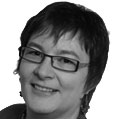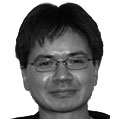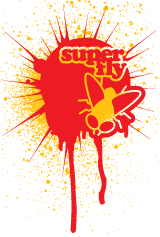Summer School on Multimodal Systems for Digital Tourism
Welcome
Starting with a pre-summer school Arduino workshop on June 26th, from June 27th – July 1st 2011 we held a summer school to introduce a new generation of researchers to the latest research advances in multimodal systems. During this week five teams worked on a range of projects which can be seen on the Final Project Page. This summer school was in the context of applications, services and technologies for tourists (referred to as Digital Tourism). Where mobile and desktop applications can rely on eyes down interaction, the tourist aims to keep their eyes up and focussed on the painting, statue, mountain, ski run, castle, loch or other sight before them. The program for this school focussed on multimodal input and output interfaces, data fusion techniques and hybrid architectures, vision, speech and conversational interfaces, haptic interaction, mobile, tangible and virtual/augmented multimodal UIs, tools and system infrastructure issues for designing interfaces and their evaluation. We welcomed participants from across SICSA, the UK and Europe who along with attending the lectures and session we had delivered five innovative and exciting digital tourism demonstrators.
Slide Show from Summer School
Speakers:
 |
 |
 |
 |
 |
 |
 |
 |
 |
 |
Overview:
We have structured this summer school as a blend of theory and practice.
Mornings are devoted to seminars from our international speakers followed by guided group work sessions or focussed time for project development. We are proving a dedicated lab with development machines for the duration of the school along with access to a MERL Diamondtouch, a Microsoft Surface (v1.0), a range of mobile devices, arduinos, phidget kits, pico-projectors, Kinects and haptic displays. As we expect participants from a range of backgrounds to attend we will form groups who will, through a guided process, propose a demonstrator they can realise during the summer school which they will demonstrate and showcase on the final day.
The Arduino workshop on Sunday the 26th of June was taught by Dr David McKeown from UCD in Ireland . Patrick Tobias Fischer and Jakub Dostal helped David as Tutors on this day. We were introduced to the basics of the Arduino, electronics, programming, development and we ended the day by building a breathalyser around a Gas Sensor.
Detailed Programme:
Sunday June 26
- 10.30 – 11.00 Registration and Tea/Coffee
- 11.00 – 13.00 Morning Arduino Session
- 13.00 – 14.00 Lunch – Mediaeval Pageant and Banquet
- 14.00 – 17.40 Afternoon Arduino Session
- 17.40 – 18.00 Transfer bags to Accommodation
- 18.00 – 19.00 Dinner at the David Russell Apartments
Monday June 27
- 10.30 – 11.00 Registration and Tea/Coffee
- 11.00 – 12.00 Welcome followed by 5 minute madness videosfrom each of the 9 lecturers to come on Tuesday to Friday
- 12.00 – 13.00 Lunch
- 13.00 – 15.00 Multimodal Interaction with the Android platform by Tristan Henderson
- 15.00 – 16.30 Tourist Game by SuperFly with “Guerrilla Ethnography” Around St Andrews
- 16.30 – 17.40 Group Project Ideation: guided by one summer school lecturer per group
- 17.40 – 18.00 Transfer bags to David Russell Apartments
- 18.00 – 19.00 Dinner at the David Russell Apartments
- 19.30 – 20.30 A Technology Ghost Talk by Dr Chris Speed from the Edinburgh College of Art atThe Undercroft, 69 South Street, Scotland, St. Andrews KY16 9QW
- 20.30 – 22.00 Welcome Garden Party and Reception – including informal discussions on project ideation
Summer school participants, organisers and several guest speakers will attend. Each group will give a 2 minute project pitch
Tuesday June 28
- 09.00 – 10.30 Multimodal Interaction with spatial data by Antonio Krüger
- 10.30 – 11:00 Morning Tea/Coffee
- 11.00 – 12:30 Multimodal Interaction for Digital Tourism by Stephen Brewster
- 12.30 – 13.30 Lunch
- 13.30 – 15.30 Group Project Work (including Tea/Coffee)
- 16.00 – 17.30 Designing Context Aware-Systems by Albrecht Schmidt
- 17.30 – 18.00 Group Project Work
- 18.00 – 19.00 Dinner at the David Russell Apartments
- 19.30 – 23.00 Group Project Work
Wednesday June 29
- 09.00 – 10.30 Case Study: Speech-driven, hands-free, eyes-free navigation by William Mackaness
- 10.30 – 11.00 Morning Tea/Coffee
- 11.00 – 12.30 Mobility as a challenge for interaction design, with Tourism as a special case by Antti Oulasvirta
- 12.30 – 13.30 Lunch
- 13.30 – 15.30 Group Project Work
- 15.30 – 16.00 Afternoon Tea/Coffee
- 16.00 – 18.00 Group Project Work
- 18.00 – 19.00 Dinner at the David Russell Apartments
- 19.30 – 23.00 Group Project Work
Thursday June 30
- 09.00 – 10.30 Haptic Tabletop Interaction for Digital Tourism by Miguel Nacenta
- 10.30 – 11.00 Morning Tea/Coffee
- 11.00 – 12.30 Creating Engaging Visitor Experiences in Museums and Heritage sites by Eva Hornecker
- 12.30 – 13.30 Lunch
- 13.30 – 15.30 Group Project Work
- 15.30 – 16.00 Afternoon Tea/Coffee
- 16.00 – 19.30 Group Project Work
- 19:30 – 22.30 Farewell dinner followed by music in the Byrne Theatre St Andrews
Friday July 1st
- 09.00 – 10.30 Multimodal Augmented Reality Interaction for Digital Tourism by Aaron Quigley
- 10.30 – 11.00 Morning Tea/Coffee
- 11:00 – 12.30 Natural language generation for Multimodal Interaction by Jon Oberlander
- 12.30 – 13.30 Lunch
- 13.30 – 15.20 Group project presentations (to panel including, entrepreneurs, designers and tourist authority representatives)
- 15.20 – 15.30 Prize giving and close
Speakers:
 Stephen Brewster, University of Glasgow
Stephen Brewster, University of GlasgowStephen Brewster is a Professor of Human-Computer Interaction in the Department of Computing Science at the University of Glasgow, UK. His main research interest is Multimodal Human-Computer Interaction, sound and haptics and gestures. Brewster received a PhD in the Human-Computer Interaction Group at the University of York. He organized the Conference on Human-Computer Interaction with Mobile Devices and Services (MobileHCI) several times and contributed to several scientific books.
 Tristan Henderson, University of St Andrews
Tristan Henderson, University of St AndrewsDr. Tristan Henderson has been a Lecturer in Computer Science in the University of St Andrews since December 2006. His research revolves around measuring communications networks and their users. His PhD looked at measuring networked game servers and game players, but more recently he has been investigating new methodologies for measuring mobile, wireless and online social networks and their users. He attempts to use the results of this network measurement to build more usable networks. Specifically networks which support the functionality that users desire. For instance we can use network measurement to improve security and privacy so that people can use pervasive sensor networks. Or we can measure network behaviour and use this to inform the design of future networks. He is one of the Workshop Organisers for Health, Wealth and Identity Theft: Designing and evaluating usable security and privacy mechanisms for online happiness a Workshop at the British HCI 2011 conference, and organised the Privacy and Usability Methods Pow-wow at British HCI 2010.
 Eva Hornecker, University of Strathclyde
Eva Hornecker, University of StrathclydeDr. Eva Hornecker is a Lecturer in the Department of Computer and Information Sciences at the University of Strathclyde in Glasgow, UK. In previous lives, she was a Postdoctoral Research Fellow at the Pervasive Interaction Lab at the Open University and the University of Sussex (on the Equator project) in the UK, and an Acting Lecturer at the University of Canterbury in New Zealand and the TU Vienna in Austria. Dr. Hornecker’s research interests concern multimodal, tangible and embodied interaction, CSCW, user research, design methods, and qualitative research methods for understanding user interaction with ‘beyond the desktop’ technologies. She has conducted several studies investigating user interaction with museum installations, including an evaluation of a museum exhibition on the development of new media technology in the Technical Museum Vienna, and most recently worked with the National Trust Scotland to user test prototypes of touchscreen installations for the Robert Burns Birthplace museum.
 Antonio Krüger, Saarland University
Antonio Krüger, Saarland UniversityAntonio Krüger is a professor of computer science at Saarland University where he heads the Ubiquitous Media Technology Lab, and is the scientific director of the Innovative Retail Laboratory (IRL) at the German Research Center for AI (DFKI). From 2004 to 2009 he was an associate professor for Geoinformatics and Computer Science at Münster University, Germany. From 2005 to 2009 he was the managing director of the institute for Geoinformatics at the same University. From 1999-2003 he was a Senior Researcher at the Intelligent Systems Lab of Saarland University and in 2000 he co-founded the University spin-off Eyeled GmbH, a company focusing on mobile computing solutions. Antonio’s main research areas are Intelligent User Interfaces and mobile and ubiquitous context-aware Systems. Some recent project include interactive display networks, mobile augmented reality and interactive surface computing. Antonio is co-organising the annual Smart-Graphics Symposium and served on various program committees in the field of intelligent mobile systems, e.g. Intelligent User Interfaces, User Modeling, Ubicomp, Mobisys, and Pervasive Computing.
 William Mackaness, University of Edinburgh
William Mackaness, University of EdinburghDr. William Mackaness is a Senior Lecturer with the School of GeoSciences in the University of Edinburgh and is involved with the EU FP7 project SpaceBook which aims to prototype a speech-driven, hands-free, eyes-free device for pedestrian navigation and exploration. His research is concerned with the application of statistical and visualisation techniques to geographical problem solving (including the use of exploratory data analysis). Beyond application, his interests are focused on theories of scale, and the characterisation of geographic space. There are significant challenges in modeling geographic space at multiple scales, in storing that information in a meaningful way such that it can support intuitive exploration of geographic pattern and process at multiple levels of detail. These ideas have relevance in real and virtual worlds, and present additional challenges when applied to the domain of location based services, and way-finding services – two areas he is particularly interested in researching.
 Miguel Nacenta, University of Calgary
Miguel Nacenta, University of CalgaryDr. Miguel Nacenta will be joining the University of St Andrews as a lecturer in May 2011 from his current position as a post-doctoral fellow at the Interactions Lab, University of Calgary, Canada. He holds an electrical engineering degree from the Technical University of Madrid (Ingeniero Superior, UPM), and a doctorate from the University of Saskatchewan, Canada, under the supervision of Prof. Carl Gutwin. Miguel’s research is focused on developing input and output technology that can extend human capabilities. He is interested in applying perceptual and social principles to novel multi-display, haptic, and multi-modal interfaces.
 Jon Oberlander, University of Edinburgh
Jon Oberlander, University of EdinburghJon Oberlander holds a Chair in Epistemics in the School of Informatics at the University of Edinburgh. He has a BA in Philosophy from Cambridge, UK (1983), and a PhD in Cognitive Science from the University of Edinburgh (1987), and has been an EPSRC Advanced Fellow at the ESRC Human Communication Research Centre. He was founder-Director of the Scottish Informatics and Computer Science Alliance, a £29M initiative bringing together leading researchers in 10 institutions across Scotland. He is now Director of Knowledge Exchange for SICSA, and leads on a new initiative on Smart Tourism. He is also Director of Inspace, a 300m2 instrumented living lab, designed to help explore the cultural significance of informatics and new media practice. His research lies at the intersection of computational linguistics and cognitive science, and aims at getting computers to talk (and write) like individual people. He has a long-standing interest in personalization via natural language generation, particularly in the field of cultural heritage. This has led to work on context-sensitive interpretation and navigation in both virtual and physical museums, and most recently to projects focusing on human-robot interaction.
 Antti Oulasvirta, Helsinki Institute for Information Technology
Antti Oulasvirta, Helsinki Institute for Information TechnologyDr. Antti Oulasvirta is a Senior Researcher at the Helsinki Institute for Information Technology HIIT where he co-directs the Ubiquitous Interaction group. His research focus lies at the intersection of human-computer interaction, mobile and ubiquitous computing, and cognitive psychology. He received his doctorate in Cognitive Science from the University of Helsinki in 2006, after which he was a Fulbright Scholar at the School of Information in UC Berkeley. During his postgraduate studies, he was an exchange student at UC Berkeley’s Neuropsychology Lab and did an internship at T-Labs in Berlin. Dr. Oulasvirta is a docent (adjunct faculty) of computer science at the University of Helsinki and a docent of cognitive science at the University of Jyväskylä.
 Aaron Quigley, University of St Andrews, Professor Aaron Quigley is the Chair of Human Computer Interaction in the School of Computer Science at the University of St Andrews in Scotland. He is the director of SACHI, the St Andrews Computer Human Interaction research group and his appointment is part of SICSA the Scottish Informatics and Computer Science Alliance. His research interests include surface and multi-display computing, human computer interaction, pervasive and ubiquitous computing and information visualisation. He is the chair of the steering committee for the International Conference series on Pervasive Computing and the Editor-In-Chief for the Journal “Computers”. Aaron has had leading roles in over a dozen international conferences and has served on over sixty international conference and workshops program committees. He has published over 110 internationally peer-reviewed publications including edited volumes, journal papers, book chapters, conference and workshop papers and holds 3 patents. He is a Chartered Fellow of the British Computer Society (BCS), a senior member of the IEEE, a member of the ACM and a recipient of a National Institute of Engineers Australia award for excellence in engineering education.
Aaron Quigley, University of St Andrews, Professor Aaron Quigley is the Chair of Human Computer Interaction in the School of Computer Science at the University of St Andrews in Scotland. He is the director of SACHI, the St Andrews Computer Human Interaction research group and his appointment is part of SICSA the Scottish Informatics and Computer Science Alliance. His research interests include surface and multi-display computing, human computer interaction, pervasive and ubiquitous computing and information visualisation. He is the chair of the steering committee for the International Conference series on Pervasive Computing and the Editor-In-Chief for the Journal “Computers”. Aaron has had leading roles in over a dozen international conferences and has served on over sixty international conference and workshops program committees. He has published over 110 internationally peer-reviewed publications including edited volumes, journal papers, book chapters, conference and workshop papers and holds 3 patents. He is a Chartered Fellow of the British Computer Society (BCS), a senior member of the IEEE, a member of the ACM and a recipient of a National Institute of Engineers Australia award for excellence in engineering education. Albrecht Schmidt, University of Stuttgart
Albrecht Schmidt, University of StuttgartAlbrecht Schmidt is a professor for Human Computer Interaction at the University of Stuttgart. Previously he was a Professor at University of Duisburg-Essen, had a joined position between the University of Bonn and the Fraunhofer Institute for Intelligent Analysis and Information Systems (IAIS). He studied computer science in Ulm and Manchester and received in 2003 a PhD from the Lancaster University in the UK. His research interest is in human computer interaction beyond the desktop, including user interfaces for mobile devices and cars. Albrecht published well over 100 refereed archival publications and his work is widely cited. He is co-founder of the ACM conference on Tangible and Embedded Interaction (TEI) and initiated the conference on Automotive User Interfaces (auto-ui.org). He is an area editor of the IEEE Pervasive Computing Magazine and edits a column on invisible Computing in the IEEE Computer Magazine. He is currently serving as the Program co-chair for Mobile HCI 2011.
 Chris Speed is Reader in Digital Spaces across the Schools of Architecture and Landscape Architecture at the Edinburgh College of Art, where he teaches undergraduate, masters and supervises PhD students.
Chris Speed is Reader in Digital Spaces across the Schools of Architecture and Landscape Architecture at the Edinburgh College of Art, where he teaches undergraduate, masters and supervises PhD students.Chris has sustained a critical enquiry into how digital technology can engage with the field of architecture and human geography through a variety of established international digital art contexts including: International Symposium on Electronic Art, Biennial of Electronic Arts Perth, Ars Electronica, Consciousness Reframed, Sonic Acts, LoveBytes, We Love Technology, Sonic Arts Festival, MELT, Less Remote, FutureSonic, and the Arts Catalyst / Leonardo symposium held alongside The International Astronautical Congress.
Chris is the PI on three significant RCUK funded projects: 1. TOTeM/Talesofthings investigating social memory within the ‘Internet of Things’ funded by the Digital Economy (£1.4mill), the project has gained international attention for its unique ability to allow users to attach memories to personal objects, 2. the JISC funded iPhone app Walking Through Time that overlays contemporary Google maps with historical maps in Edinburgh allowing users to walk roads that no longer exist and inhabit spaces that have since been erased , and 3. Community Web2.0: creative control through hacking’. This £40K feasibility study will explore the extent to which parallels between virtual society (Internet) and actual society (communities) may be extended in such a way that helps make sense of both the opportunities and risks of the Big Society for communities.
Game organiser:
 Jon Gill, Superfly
Jon Gill, SuperflySummer school attendees will have the opportunity to participate in a “tourist game” around St Andrews, run by Jon Gill from Superfly.

SuperFly conceive and manage creative and engaging events!
We have two key aims:
- To provide a platform for creatives (which is free from submission fees)
- To present their work in spaces not usually associated with exhibitions
In the past two years SuperFly has curated various, unusually situated, outdoor art exhibitions. Then, in November 2010 SuperFly developed a QR Treasure hunt for the NEoN Digital Arts festival, and in March 2011 we ran another QR hunt for the Game To Learn conference run in partnership by JISC and Learning and Teaching Scotland. We are primarily interested in storytelling. With the QR hunts we are interested in the stories which are formed through the experience of participation and how these stories might be captured, documented and shared. We have some great ideas up our sleeves for St Andrews and look forward to putting participants through their paces across this great city.
Accommodation, Venue and Directions:
The accommodation for participants attending this summer school will be in the David Russell Apartments at the University of St Andrews. The venue for the summer school seminars and group work sessions will be in the School of Computer Science (Jack Cole and John Honey buildings) in the University of St Andrews. The University of St Andrews is in Fife Scotland and is approximately 30 minutes south east of Dundee and 90 minutes north east of Edinburgh. The two closest airports are Dundee and Edinburgh.
Address and Contacts:
Academic Contact: Professor Aaron Quigley
Secretariat: Valia Tavoularie-Matthiopoulos
Address:
Summer School on Multimodal Systems for Digital Tourism
School Of Computer Science
North Haugh
The University of St Andrews
Fife KY16 9SX
United Kingdom
+44 (0) 1334 463253
Organisers:
This summer school is jointly organised by SACHI in the School of Computer Science at the University of St Andrews, The School of Informatics at Edinburgh University, The Multimodal Interaction Group in the School of Computing Science at the University of Glasgow and the Department of Computer and Information Science at the University of Strathclyde.
- Stephen Brewster – University of Glasgow
- Eva Hornecker – University of Strathclyde
- Jon Oberlander – University of Edinburgh
- Aaron Quigley – SACHI, University of St Andrews
Application Process:
Deadline: May 3rd, please email Valia Tavoularie-Matthiopoulos and include the following details:
- Name
- Website
- Institution
- Supervisor’s Name
- Interested in attending Arduino Workshop?
- Biography (250 words)
- Description of area of research (250 words)
- Interest in Multimodal Systems for Digital Tourism (250 words)
- Technical/Design/Ethnography/Other Skills (100 words max)
- Previous experience with Arduino/Android/Amarino/Sensors/AR etc/
Notification of acceptance, May 9th.
Deadline for payment of registration fee May 13th (details sent with notification of acceptance).
Fees and Registration:
The registration fee is £450, which covers four nights of accommodation (Mon – Fri) in St Andrews, breakfast (at the David Russell Apartments), lunch, dinner and summer school materials. Also included is a welcome reception and farewell dinner. The summer school will coincide with the main tourist season here where hotel prices in town tend to be very inflated hence we are making this one inclusive price using on campus accommodation.
If you are interested in attending the Arduino workshop on the 26th then the registration fee is £520 and covers five nights of accommodation (Sun – Fri).
SICSA will cover the £450 registration fee for PhD students from most Scottish Universities (see the SICSA web-page for a list of departments that are part of SICSA). The number of SICSA students is limited to 16 and a decision on ranking if this number is exceeded will only be taken if necessary. Please note, the option to attend the Arduino workshop on the 26th costs £70 and is not covered by the SICSA registration fee waiver.








